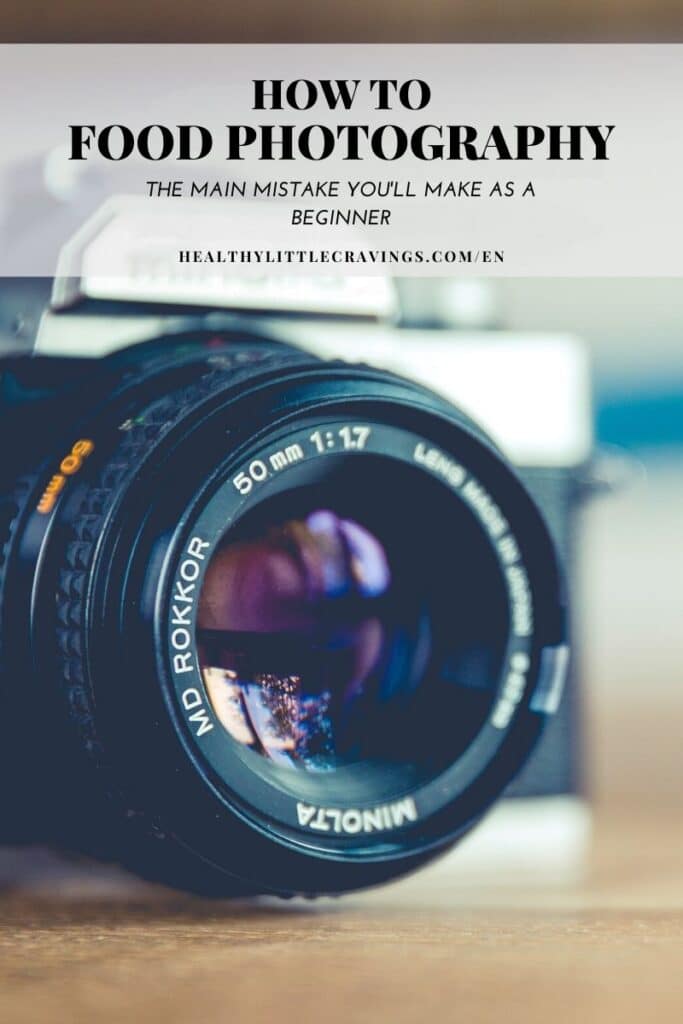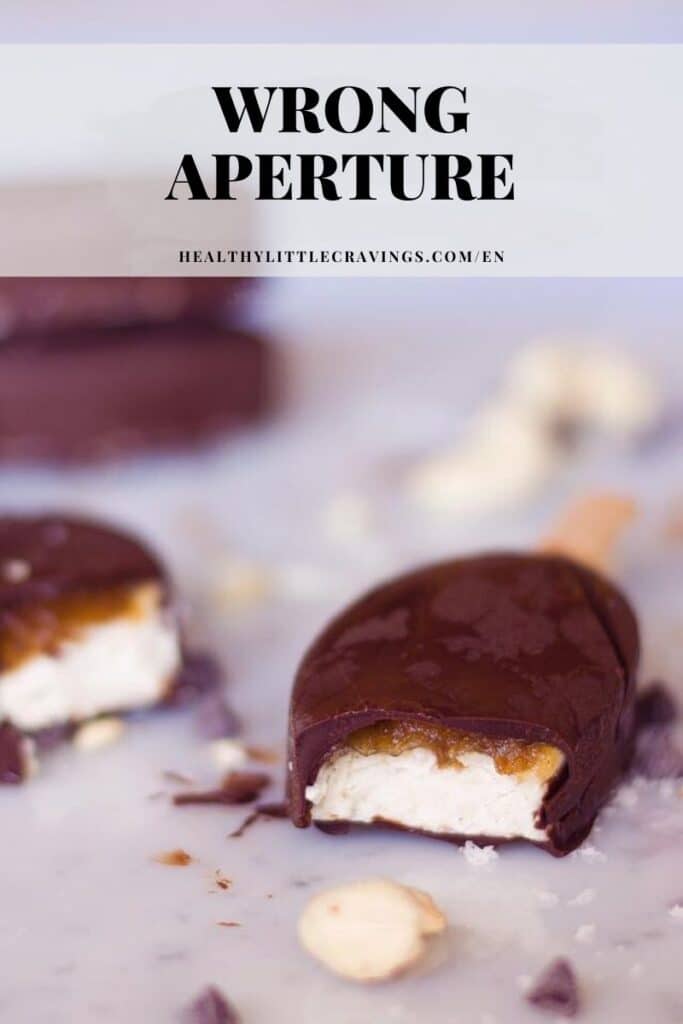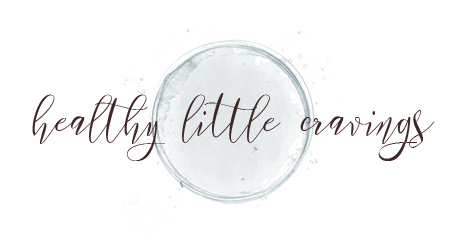If you're curious about HOW TO food photography, you're in the right place. I'll give you my ONE advice.
Ok dear friends, if you're reading this post you might be, actually you definitely ARE, interested in knowing HOW TO start food photography and what the most common mistakes of beginner photographers are.
I'll be concise: there is ONE MAIN mistake that I made at the beginning of my 'journey' into photography, so keep reading if you're really interested.

HOW TO food photography: a short premise first...
There's a quote that says 'Experience is the teacher of all things'**. With this post, I want you to know the main mistake I have made, so you can learn from my experience and know what you have to do as a first step.
I will quickly recap my 'journey':
- in 2016 I started my food blog and Instagram account with zero photography knowledge. What I used to do was taking inspiration from others and try to imitate (not copying, just imitating);
- end of 2017: I started feeling frustrated because I realized my photography was mediocre and didn't have that little extra something;
- at the beginning of 2018 I started ruminating on the past: how I could/should have spent my savings, what I should have invested in etc.
At that time, I only had approximately 250 € left on my pre-paid card. In March, Tamsin (@cupfulofkale) posted an IG story where she was offering a discount on Sarah Fennel's Foodtography course**. I decided to join the free webinar, then I fell in love with all the content (so many new things for me). Coincidence was the first payment was around 250€, so how could I miss this opportunity? Yes, that would have meant spending all my savings, but it would also have signified my career could have taken a turn.
Post updated on May 2020
I am now an affiliate @ Foodtography School. That means I'm going to make a commission if you invest in the course. All opinions are mine and not influenced.
So, now, do the math: it took me two years to realize that I had to invest in a well-made professional course. I did it, it was the best choice I've ever made.
Someone told me I didn't need it because my photos were 'good enough'. Well, my inner self didn't want to be 'good enough', I wanted to know, learn new things and stand out!
The solution was there in front of me. I had to STUDY.
Learn, and learn from others...
All this "sermon" to say what? Do not make my mistake, do not entirely rely on yourself and your mistakes (confusing?).
Don't get me wrong, I'm not saying you don't have to believe in yourself. I know it is subtle, but there's a difference.
Back to that quote: 'Experience is the teacher of all things', so yes trial-and-error is good, but STUDYING is what will help you learn new things and stand out.
Study + practice is the successful combo. Repeat it as a mantra: study and practice.
I've thought about this so many times and this is the only regret I have. I haven't succeeded immediately because I was not aware of what I was doing, I didn't have a plan to follow.
Like when you're a student and they give you the biannual coursework: you need it or you won't know what you're going to learn.
What you need...
What YOU need as a beginner is awareness of what you are doing before/during/after the shooting.
I started shooting in manual mode immediately, so I never relied on automatic mode. For some reasons, though, I was not aware of what I was doing (at all), I didn't know the basics.
For example, early on I used to only shoot with f/1.8 (See photo below) - don't ask me why - and the result was a shallow depth of field and only a small portion of my photo on focus. Every time I had to do focus stacking (combining different shots) using Photoshop. A total waste of time since I simply could have used a smaller aperture (but remember, I didn't have the basics so I couldn't know).

Same with ISO, I didn't know that the lower the ISO, the better it was because I would have had less noise.
Every time I had to shoot, I groped around.
If I would be able to go back in time, I would have made these things a priority:
- Study your camera settings and how exposure works (read this)
- Study how the light works (I only recently bought this ebook by Rachel Korinek - I loved it so much. It really changed my vision!)
- Study the colors theory (color wheel etc)
- ...and the psychology behind colors (to add emotional effects to a scene, to create mood)
- Study composition (so many things to say here, for now google: rule of thirds, golden spiral, golden ration, dynamic symmetry...)
- Study post production (Photoshop and Lightroom, especially)
- And if you want this to be your job, you also want to know how to market yourself.
In conclusion, if you're a beginner my advice for you is to invest in a well-made course and/or dedicate half an hour/one hour a day to study autonomously (on books, ebooks, videos etc).
I really hope this was useful for you. Stay tuned for other posts on Food Photography and don't hesitate to ask everything you want here or on Instagram (DM me!)
**Julius Caesar, Commentarii de Bello Civili


Leave a Reply